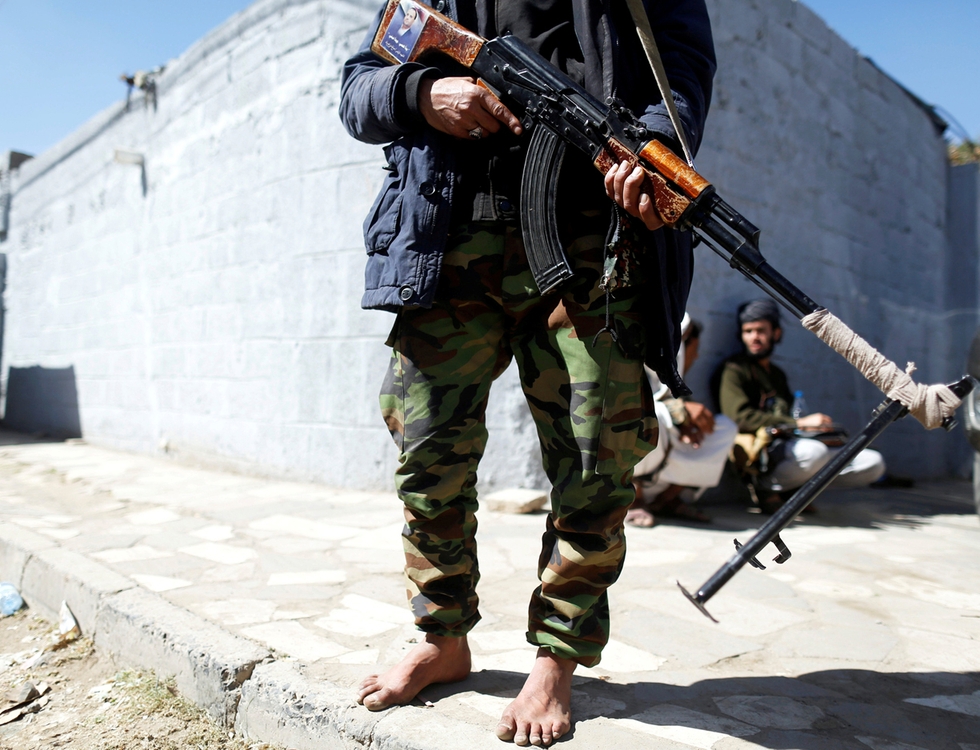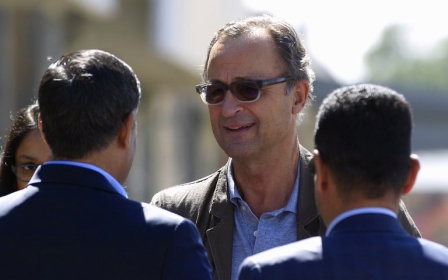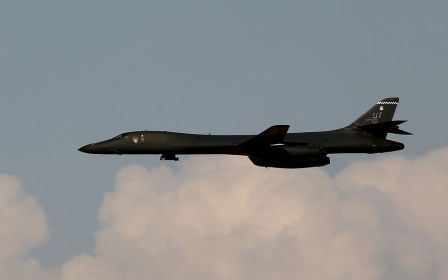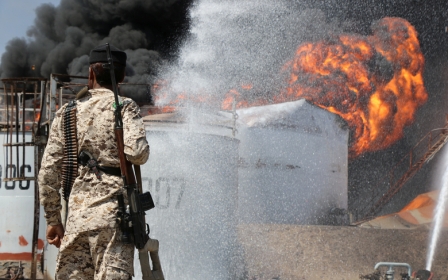Yemen's Houthis finance war with fuel from Iran: UN report

Fuel loaded at ports in Iran has generated revenue to finance Yemen's Houthi rebels in their fight against the country's Saudi-backed government, according to a report by a United Nations panel of experts seen by AFP.
Citing an 85-page report sent to the UN Security Council, AFP reported on Friday that the panel discovered fuel was being "loaded from ports in the Islamic Republic of Iran under false documentation" to avoid UN inspections.
To do it, the experts said, "a small number of companies, both within Yemen and outside" have operated as "front companies," using fake documents to conceal the fuel shipments.
"The revenue from the sale of fuel was then used to finance the Houthi war effort," the report said, according to AFP.
AFP said the report describes the fuel as being "for the benefit of a listed individual" who is on a UN sanctions blacklist.
The news agency did not provide further details about this person's identity.
The experts have in past reports pointed to a possible Iranian link to missiles fired by Houthi rebels at Saudi Arabia, after they travelled to Riyadh to examine weapons debris.
In a previous report, the experts said they were investigating monthly fuel donations from Iran valued at $30m.
Iran has repeatedly denied that it is providing military support to the Houthis, who seized the Yemeni capital Sanaa in 2014 and ousted President Abd Rabbuh Mansour Hadi.
Saudi Arabia launched a military offensive in Yemen in 2015, supported by the United Arab Emirates, to push back the rebels and restore Hadi to power.
Saudi-led coalition bombings
The Houthis have control of Sanaa and the key Yemeni port city of Hodeidah, a main entry point for most of the imports to Yemen and which has seen fierce fighting between Houthi and pro-government forces backed by the Saudi-led coalition.
The warring sides agreed to a ceasefire in Hodeidah during UN-brokered talks last month in Sweden, and UN monitors are on the ground to oversee a pullback of forces from the port.
"Throughout the reporting period of 2018, Yemen continued its slide toward humanitarian and economic catastrophe," the experts said in their report, according to AFP, describing the country as "deeply fractured" with a broken economy.
The ongoing war has plunged Yemen into a dire humanitarian crisis in which thousands are on the brink of famine.
Government forces and the Saudi-led coalition have made "significant progress" on the ground against the Houthis, the UN experts said in their report, but "the aim of restoring the authority of the government throughout Yemen is far from being realised".
The panel also reported on its investigations into five air strikes in Houthi-controlled areas of the country, including a bombing of a bus carrying children and a shelling attack in August.
It found that the Saudi-led coalition was responsible in four cases, including the bus bombing that killed 43 people and wounded 63 others, the majority of whom were children.
The experts also said the coalition was "likely responsible" in another incident in April 2018 involving the bombing of a building in Hodeidah that killed 14 civilians, including seven children.
New MEE newsletter: Jerusalem Dispatch
Sign up to get the latest insights and analysis on Israel-Palestine, alongside Turkey Unpacked and other MEE newsletters
Middle East Eye delivers independent and unrivalled coverage and analysis of the Middle East, North Africa and beyond. To learn more about republishing this content and the associated fees, please fill out this form. More about MEE can be found here.




